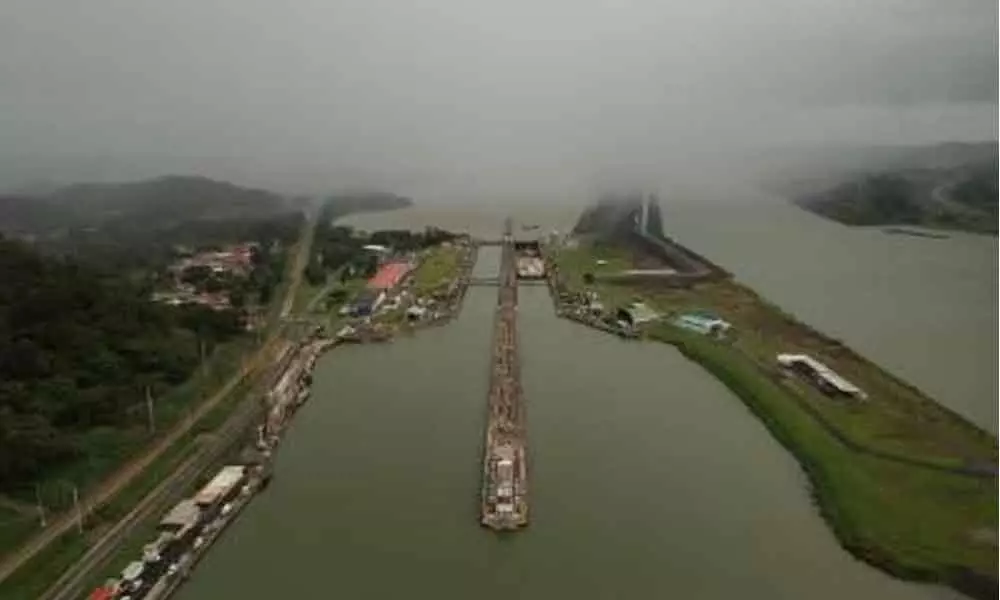How China shackled Sri Lanka

How China shackled Sri Lanka
In early June, US President Joe Biden, under an executive order, essentially blacklisted Chinese firms by prohibiting US investments in certain Chinese firms that "undermine the security or democratic values of the United States and our allies".
In early June, US President Joe Biden, under an executive order, essentially blacklisted Chinese firms by prohibiting US investments in certain Chinese firms that "undermine the security or democratic values of the United States and our allies".
The port city developers, China Harbour Engineering Company (CHEC), and the mother company, China Communications Construction Company (CCCC), were on this list.
On its China policy, the US stands firm with its bipartisan consensus. This would raise concerns in nations like Sri Lanka, which has a large Chinese infrastructure portfolio constantly growing in the country.
Regional powers and their periphery
Such Chinese firms are barely exclusive to Sri Lanka. In fact, they operate in the US's own backyard along the 82-kilometre Panama Canal. The Panama Canal was built for the strategic expansion of the US, connecting the Atlantic–Pacific Ocean route, and is today surrounded by Chinese infrastructure projects.
Chinese firms such as CHEC and CCCC are also involved in infrastructure development in Panama. In 2017, Panama ended its diplomatic relationship with Taiwan and embraced Chinese BRI assistance amounting in billions of dollars toward infrastructure. China is involved in a bridge project over the Canal for $1.4 billion and a $4 billion rail project.
It is also involved in the power sector, mining, and a Chinese telecom infrastructure project with Huawei, including a digital free trade zone in San Miguelito. Panama's shifting to Beijing had a domino effect, with 15 Latin American nations welcoming China's BRI.
However, the present Panamanian regime has managed to rebalance and scale back its Chinese infrastructure including the bridge, considering the Chinese 'debt trap' and the US geopolitical security concern.
In a similar manner, in the backyard of the regional power India, Sri Lanka has invited the Chinese BRI with several projects that are of concern to India. Colombo has fallen into the premeditated scheme of a Chinese debt trap, paying off its loans in varied ways, from leasing its strategic assets through debt-equity swaps to creating extra-jurisdictional Special Economic Zones.
Like in Panama, the Sri Lankan government would need to backtrack its China 'bandwagoning' foreign policy and bring a 'balance', and develop a considered perspective on the geopolitical and regional security concerns its close relationship with China brings.
The interwoven regional geographical alignments, such as India-Sri Lanka and the US with its immediate periphery in Panama, cannot be outweighed by the strategic interest drawn by an extra-regional power, China. The same 'Monroe Doctrine' is applicable in China's periphery.
China's port city victoryin Colombo
Speaker of the Sri Lankan house, Mahinda Yapa Abeywardena, inked the Colombo Port City Economic Commission Bill on May 27 after it received approval from two-thirds of the government. Sri Lanka's Supreme Court observed several clauses of the bill to be unconstitutional.
The praetorian regime, with its majoritarian power, passed the Port City Bill in a hurry, ignoring and threatening the nation's sovereignty.
Justifying the passing of the bill during the pandemic and lockdown, the Speaker of the house explained, "There were precedents that Parliament sittings have been conducted without any hindrance even during World War II and also when the Sri Lankan Parliament came under a bomb attack."
(Asanga Abeyagoonasekera is a geopolitical analyst and author of 'Conundrum of an Island [2021]'. This commentary was initially published by ORF New Delhi)








